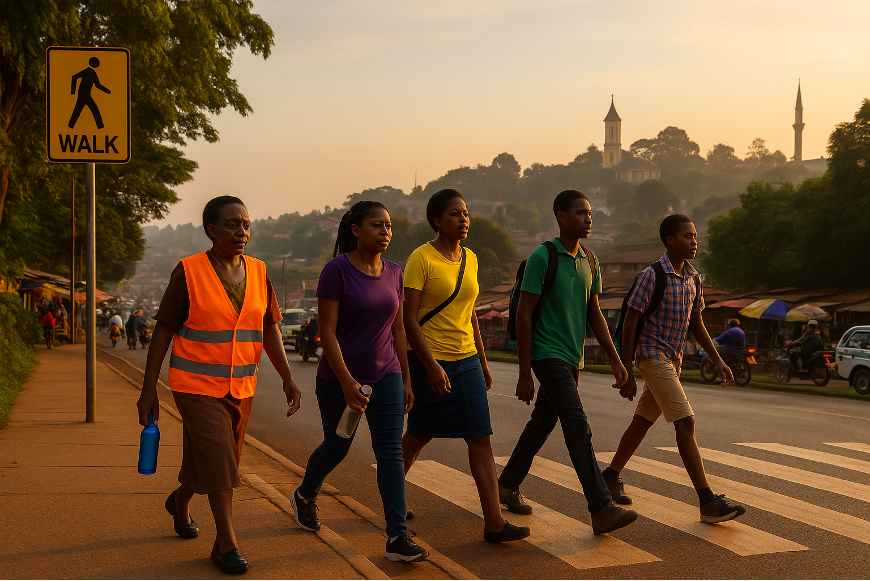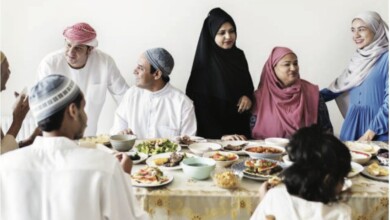The immense benefits of walking: A simple path to health and wellness

with Ismail Asiimwe
Assalam alaykum warahmatullahi wabarakatuh
Walking, a simple and straightforward activity, is a common practice among most Ugandans. Whether it’s the journey to school, the market, or the daily commute, walking is an integral part of everyday life. This simplicity makes it an ideal starting point for fostering a broader culture of movement, as it is a form of physical activity that is easy to adopt and accessible to nearly everyone.
Uganda walks—let’s build on it
A 2018 BBC article cites a World Health Organization report stating that Ugandans are among the most physically active people in the world. In Kampala and other urban and peri-urban areas, walking is a primary means of transportation for people to support their livelihoods, enabling them to reach their places of work, markets, and services, and, by extension, it serves as a daily form of exercise. On a typical weekday, many residents log about 90 minutes on foot commuting to and from work, and some walk far longer.
However, a quieter trend is emerging—more time spent at desks, increased use of cars and boda rides for short trips, and more sedentary weekends. The good news is that with awareness and effort, we can reclaim even small amounts of walking, offering significant health benefits and a promising future for physical activity in Uganda.

Why walking matters for our health system
The Ministry of Health underscores that non-communicable diseases (NCDs), such as heart disease, stroke, diabetes, and some cancers, are on the rise, even as the health system continues to combat infectious diseases. Walking, a versatile form of exercise, is particularly effective in reducing risk factors for NCDs. Numerous studies have demonstrated that even brief daily walks, as short as 15 minutes, can lead to significantly improved health outcomes.
For those who engage in a daily walk of 30 minutes or more, the health benefits are substantial. In fact, some researchers have established a direct correlation between this level of activity and a greater reduction in cardiovascular health risks, a serious health concern that walking can help to mitigate. Leading public health organizations, such as the World Health Organization, recommend at least 150 minutes of brisk walking each week, which is equivalent to about 30 minutes on five days.
According to the American Heart Association, brisk walking (30 minutes a day) for at least 150 minutes a week enhances cognitive function, emotional well-being, and sleep quality, while increasing vitality and endurance and promoting mental health, including a reduced risk of depression. It also lowers the risk of major diseases, including heart disease, stroke, type 2 diabetes, and several types of cancer, while improving blood pressure, blood sugar, and cholesterol levels.
Over time, it strengthens bones (reducing osteoporosis risk), supports memory (lowering dementia risk), and helps prevent weight gain.
Health wisdom in the Qur’an
In the Quran, specifically in Surat Al-An’am, verse 38, Allah states, “…We have not neglected in the Register a thing.” This suggests that Almighty Allah has taken into account everything. Additionally, in Surah Al-Mulk, verse 15, Allah says, “It is He who made the earth tame for you—so walk among its slopes and eat of His provisions, and to Him is the resurrection.” Scholars interpret this verse to mean that humans are intended for physical activity to survive and protect themselves, which encompasses both their physical and mental well-being.
Getting (re)started
Beginners should start small: walk five to ten minutes at a leisurely pace, then add five minutes every few days until you can comfortably reach thirty minutes. Walk with friends or family, stroll around your neighborhood, and choose a time that fits your daily routine. If you already walk regularly, consider extending some sessions from thirty to forty-five minutes. Include a two- to five-minute warm-up, starting easy and gradually increasing the effort. A light jog and occasional hill walks can also help. Be creative: use work breaks to pace the corridors, take the stairs when possible, and encourage children to stay active both at school and at home. Join your local mosque and motivate one another to walk there regularly.
The writer is a Doctoral Candidate in Kinesiology at the University of Georgia, Athens, and a lecturer of Sports and Exercise Science at Gulu University. Readers can share feedback via asiimweismail@gmail.com






